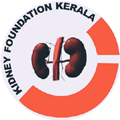Kidney Disease – A Silent Killer
Chronic kidney disease is particularly dangerous because the symptoms emerge slowly and silently, and are often detected only when it has reached stage 3 or later, when damage is already severe and irreversible. Patients can lose 30% to 40% of kidney function without showing symptoms.5 Although a simple test can detect protein in the urine, which is the first sign of trouble, these tests are not routinely ordered. When these tests are administered, protein in the urine frequently is not flagged as CKD, partly because patients without symptoms are not pressing for a diagnosis.
Kidney Foundation recommends routine screening for those at higher risk: people aged ≥60 years and those with hypertension, diabetes, coronary artery disease, family history of CKD, or morbid obesity. A single positive urine test requires follow-up, and the detection of albuminuria on 3 consecutive monthly urine tests should trigger a diagnosis of stage 1 CKD, even if the blood test is normal. This early diagnosis should be followed by a clinical action plan for CKD, which can be co-managed with a nephrologist, and will hopefully slow or prevent progression to more advanced stages of the disease.
Those of us who treat late-stage CKD applaud this long-overdue attention to kidney health , and we hope that patients and physicians will recognize this wake-up call so that more people do not find themselves discussing options for late-stage CKD at their first visit.
Pledge to be an organ donor &
Apply for a donor card
Visit: www.organindia.org
Or
www.mohanfoundation.org







